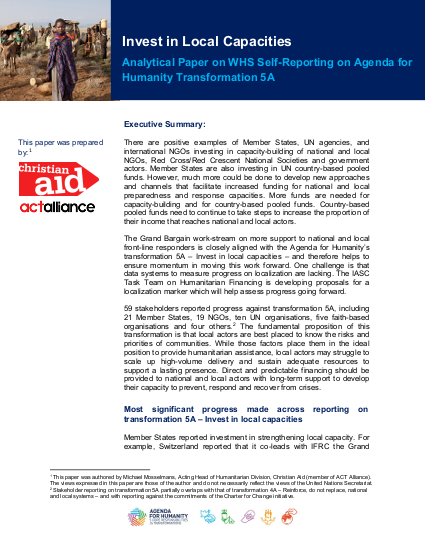
There are positive examples of Member States, UN agencies, and international NGOs investing in capacity-building of national and local NGOs, Red Cross/Red Crescent National Societies and government actors. Member States are also investing in UN country-based pooled funds. However, much more could be done to develop new approaches and channels that facilitate increased funding for national and local preparedness and response capacities. More funds are needed for capacity-building and for country-based pooled funds. Country-based pooled funds need to continue to take steps to increase the proportion of their income that reaches national and local actors.
The Grand Bargain work-stream on more support to national and local front-line responders is closely aligned with the Agenda for Humanity’s transformation 5A – Invest in local capacities – and therefore helps to ensure momentum in moving this work forward. One challenge is that data systems to measure progress on localization are lacking. The IASC Task Team on Humanitarian Financing is developing proposals for a localization marker which will help assess progress going forward.